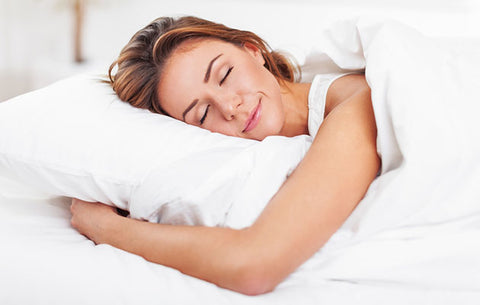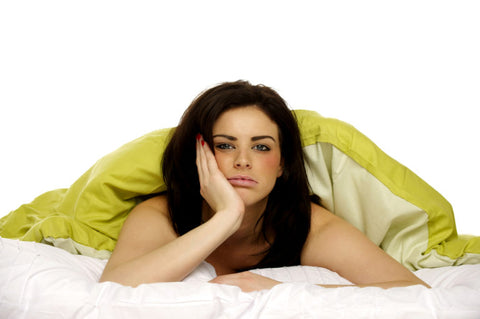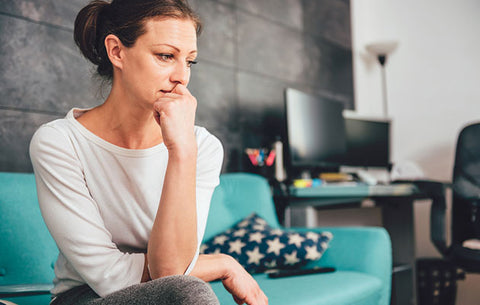How to get good sleep zzz...
Sleep difficulties are often associated with anxiety and, in turn, lack of sleep makes anxiety worse. This chicken-and-egg scenario means it’s often difficult to know which problem came first. Luckily, taking steps to reduce anxiety can help your sleep quality improve – and vice versa.
Here are 20 top tips to help you get a good night’s sleep.
No napping
Try to avoid day-time naps, which reduce your need for sleep at night.
Avoid stimulants
Steer clear of substances that interfere with sleep such as caffeine, nicotine and alcohol. Although alcohol may help you fall asleep initially, you are likely to have a disturbed sleep once the drugged effect has worn off.
Get moving
Take regular exercise, but avoid strenuous activity late in the evening.
Eat light

A balanced meal of rice, vegetables and fish Eat a light meal in the early evening; otherwise hunger – a primitive alerting response – can stop you sleeping. A large meal can lay heavy on your stomach and also upset your ability to sleep.
Eat early
Try not to eat after 7 pm, and avoid rich, heavy evening meals that take a lot of digesting.
Buy a bigger bed
Invest in a BIG bed so you and your partner have lots of room to move around without disturbing each other (it also provides cooler spaces to move into when necessary).
Find the perfect mattress

Ensure your mattress is not too hard and not too soft. Temperature-sensitive viscose-elastic mattresses, which mould to your shape and support your joints, reduce night-time tossing and turning as much as five-fold.
Ventilate your bedroom
Keep a window slightly open in your bedroom at night to allow oxygen to circulate (fit a safety catch if necessary to deter burglars).
Keep the bedroom for bedroom activities
Learn to associate the bedroom with sleep and intimacy – try not to use it for study, eating, working or watching TV.
Destress before bed
Take time to unwind from the stresses of the day before going to bed – read a book, listen to soothing music or have a candle lit bath.
Regulate your body clock

Try to maintain a regular night routine, going to bed and rising at a similar time each night to help regulate your internal body clock.
Get into a routine
Set the mood for sleep by establishing a regular bedtime routine such as checking security, brushing your teeth, turning down the bed and setting your alarm clock.
Clear your mind
If something is worrying you write it down and promise yourself you’ll deal with it in the morning – don’t take worries to bed with you.
Try a pre-sleep drink

Some people find a warm, milky drink before bed helps them relax – hot milk with cinnamon or nutmeg is better than chocolaty drinks that contain some caffeine. But avoid late drinks if you regularly wake at night to visit the bathroom – a full bladder is guaranteed to disturb your rest.
Keep your bedroom dark
Make sure your bedroom is dark. Switch off all lights, and fully draw the curtains, which should be well-lined to block out all light. You may need an additional black-out blind during summer.
Keep it cool
Make sure your bedroom is quiet, and a comfortable temperature – 18 to 22 degrees C is ideal.
Try lavender

Lavender oil and fresh lavender on a pillow Place a few drops of relaxing lavender essential oil on a hanky and tuck it near your pillow, or use a sachet of dried lavender flowers.
Beat those hot flushes
If menopausal hot flushes and night sweats wake you, keep a fan in your room to cool you down; top your bed with layers (sheet and duvet, or sheet and blankets) so you can quickly reduce your coverings.
Herbal remedies such as those containing Black Cohosh can help reduce menopausal symptoms, too. MenoHerb® is a traditional herbal medicinal product used for the relief of symptoms of the menopause, such as hot flushes, night sweats, and temporary changes in mood (such as nervous irritability and restlessness), exclusively based upon long-standing use as a traditional remedy. Always read the label
Try silk sheets
Many people find that sleeping in silk sheets/duvet cover and pillow cases helps to regulate night-time temperature and humidity. As a bonus, silk pillowcases don’t wrinkle, so you don’t wake up with creased skin.
Natural sleep support
Take a relaxing herbal remedy, such as valerian root extract, half an hour before going to bed. It is traditionally used to reduce sleep disturbance due to mild anxiety. Valerian root extracts have been used to help you achieve a refreshing, natural night’s sleep. It is reported to have positive effects on sleep structure, helping you to slip more quickly down into the deeper levels of slow-wave sleep.



